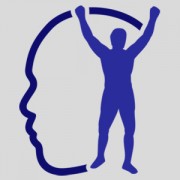MESSAGE #1288 HOW ARE YOU PLAYING THE GAME?
At the end of an athlete’s career, he/she never says, “I wish I would have held back.”
If successful, an athlete most likely will say, “I’m glad I went all-out.”
Taking risks is a key element to success in sports and life. You need to get out of your comfort zone.
Do you want to be comfortable, or do you want to be great?
Today, I took a risk.
I emailed Martin Seligman, the father of Positive Psychology. The guy is a rock star.
Part of me felt that I shouldn’t do it. Why would he want to talk to me?
But I did it anyway.
Not only did he respond, he shared some valuable resources with me.
Have you ever NOT reached out to someone who you thought wouldn’t give you the time of day?
Have you ever NOT hit a shot that you thought you might miss?
It happens all the time. But when that occurs, people are just training themselves to hold back.
Is that how you want to play the game?

